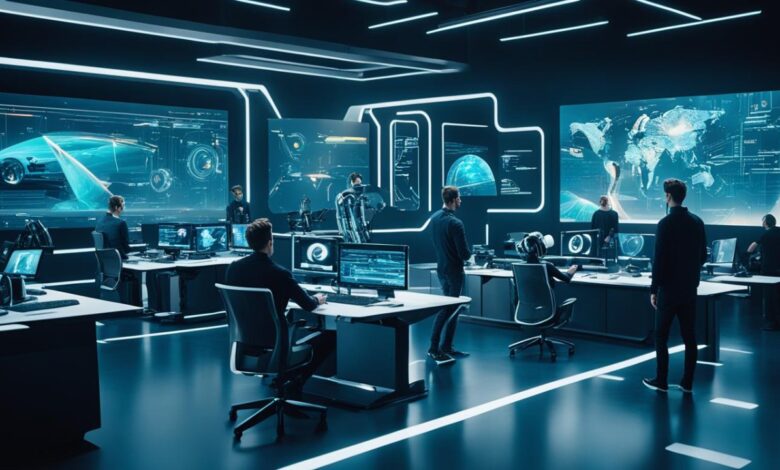The Rise of AI in Filmmaking: Revolutionizing the Movie Industry

Introduction
The film industry is no stranger to technological innovation. From the advent of sound and color to the introduction of CGI, each new advancement has left an indelible mark on cinema. Today, artificial intelligence (AI) is poised to become the next game-changer in filmmaking, offering new tools and techniques that are transforming how movies are made and experienced. For those interested in how AI is also enhancing the world of literature, English to Shakespearean translator is a fascinating example of AI’s potential.
AI in Scriptwriting
One of the most exciting developments is the use of AI in scriptwriting. AI algorithms can analyze vast amounts of data from existing scripts to identify successful narrative structures and character arcs. This information can then be used to assist writers in crafting compelling stories. Some AI programs can even generate entire scripts, offering a fresh perspective that can inspire human writers and lead to innovative storytelling.
Enhancing Visual Effects
AI is also making waves in the realm of visual effects (VFX). Machine learning algorithms can automate complex tasks, such as rotoscoping and motion capture, significantly reducing the time and cost associated with these processes. AI-driven tools can enhance the realism of CGI by improving texture mapping, lighting, and animation, allowing filmmakers to create more immersive and visually stunning worlds.
Revolutionizing Post-Production
Post-production is another area where AI is making a significant impact. AI-powered editing software can analyze footage and suggest edits, streamline workflows, and even color-correct scenes with remarkable precision. This not only speeds up the editing process but also allows editors to focus on the creative aspects of their work, resulting in a more polished final product.
Personalized Viewing Experiences
AI is also transforming how audiences interact with movies. Recommendation algorithms on streaming platforms analyze viewers’ preferences to suggest films tailored to their tastes, ensuring a more personalized viewing experience. Additionally, AI is being used to create interactive films where the storyline can change based on viewers’ choices, offering a more engaging and immersive experience.
The Future of AI in Filmmaking
As AI technology continues to evolve, its applications in filmmaking are likely to expand even further. Future advancements could include AI-generated actors, virtual sets, and real-time scene generation. These innovations have the potential to democratize filmmaking, making it accessible to a wider range of creators and allowing for more diverse and innovative content. The potential of AI is vast, and its influence extends beyond film into other areas such as literature, as demonstrated by tools like the Shakespearean translator website.
Conclusion
The integration of AI in filmmaking is revolutionizing the industry, offering new tools that enhance creativity, streamline production, and personalize the viewing experience. While AI will never replace the unique vision and emotional depth that human filmmakers bring to their craft, it undoubtedly provides powerful tools that can augment and enhance the art of cinema. As we look to the future, the collaboration between AI and human creativity promises to usher in a new era of filmmaking, full of exciting possibilities.



